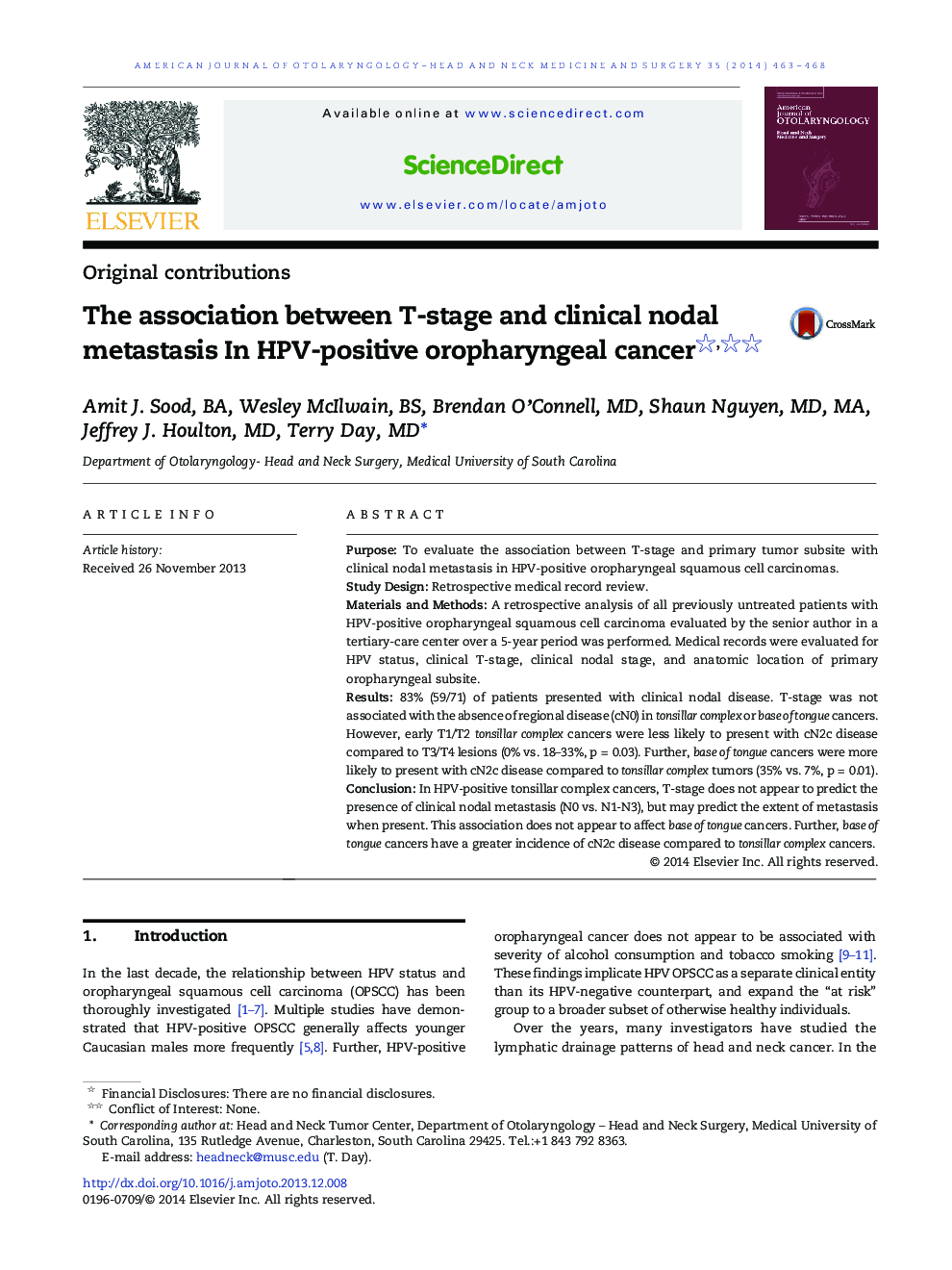| Article ID | Journal | Published Year | Pages | File Type |
|---|---|---|---|---|
| 4103081 | American Journal of Otolaryngology | 2014 | 6 Pages |
PurposeTo evaluate the association between T-stage and primary tumor subsite with clinical nodal metastasis in HPV-positive oropharyngeal squamous cell carcinomas.Study DesignRetrospective medical record review.Materials and MethodsA retrospective analysis of all previously untreated patients with HPV-positive oropharyngeal squamous cell carcinoma evaluated by the senior author in a tertiary-care center over a 5-year period was performed. Medical records were evaluated for HPV status, clinical T-stage, clinical nodal stage, and anatomic location of primary oropharyngeal subsite.Results83% (59/71) of patients presented with clinical nodal disease. T-stage was not associated with the absence of regional disease (cN0) in tonsillar complex or base of tongue cancers. However, early T1/T2 tonsillar complex cancers were less likely to present with cN2c disease compared to T3/T4 lesions (0% vs. 18–33%, p = 0.03). Further, base of tongue cancers were more likely to present with cN2c disease compared to tonsillar complex tumors (35% vs. 7%, p = 0.01).ConclusionIn HPV-positive tonsillar complex cancers, T-stage does not appear to predict the presence of clinical nodal metastasis (N0 vs. N1-N3), but may predict the extent of metastasis when present. This association does not appear to affect base of tongue cancers. Further, base of tongue cancers have a greater incidence of cN2c disease compared to tonsillar complex cancers.
